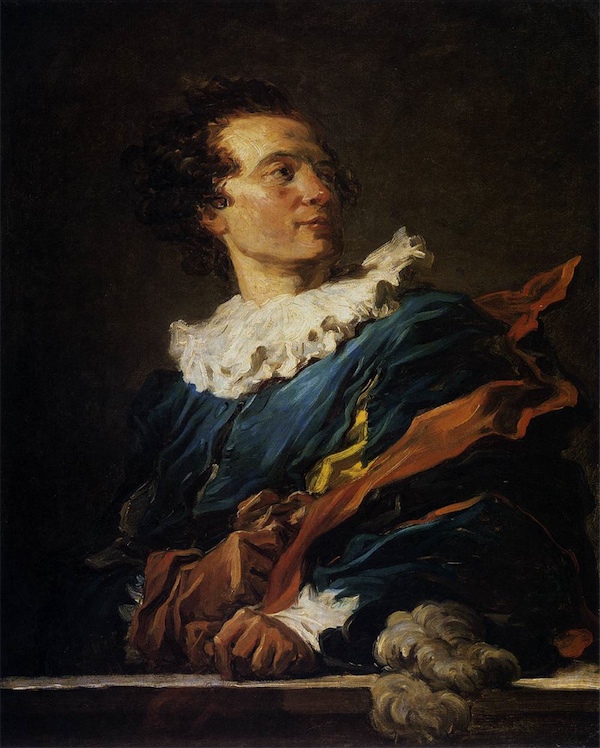
Conscience! Conscience! Instinct divin, immortelle et céleste voix; guide assuré d’un être ignorant et borné, mais intelligent et libre; juge infallible du bien et du mal, qui rends l’homme semblable à Dieu, c’est toi qui fais l’excellence de sa nature et la moralité de ses actions; sans toi je ne sense rien en moi qui m’élève au-dessus des bêtes, que le triste privilège de m’égarer d’erreurs en erreurs à l’aide d’un entendement sans règle et d’une raison sans principe.
Conscience! Conscience! You divine instinct, immortal celestial voice; sure guide for an ignorant and finite creature, yet intelligent and free; infallible judge of good and evil, making man like unto God! In you are reposed the excellence of human nature and the morality of his actions; apart from you, I find nothing in myself to raise me above the beasts—nothing but the sad privilege of wandering from one error to the next, by the help of an unbridled understanding and a reason which knows no principle.
—Jean-Jacques Rousseau, Émile, ou, de l’éducation bk iv (1762) in Œuvres complètes vol. 4, pp. 600-601 (B. Gagnebin ed. 1969)(S.H. transl.)
I recently read Mark Lilla’s study of religion, politics and Western society, The Stillborn God, and was fascinated by his discussion of the age of enlightenment, what he calls the era of god and ethics. At the center of that discussion was Rousseau’s novel on education, Émile, and particularly the tale of the Savoyard abbé. This is a confessional meeting with a rural cleric who recounts a life of thinking about religion and god. This was enough to persuade me that I needed to read Émile, but having done so, I came away thinking that the only really extraordinary aspect of it is this story which appears in book four. The abbé, it turns out, is far from a doctrinaire Catholic (certainly not doctrinaire by the standards of the eighteenth century). He admits to his doubts about god and the church, and he explains how he reconciled his vocation and his doubts. “Le doute sur les choses qu’il nous importe de connoitre est un état trop violent pour l’esprit humain; il n’y résiste pas longtemps, il se décide malgré lui de maniére ou d’autre, et il aime mieux se tromper que ne rien croire.” (“Doubt about things we need to know is a state too violent for the human mind; whether it wishes or not, it cannot resist a decision, and it prefers deception to believing nothing.”) The abbé thus justifies his decision to stay on as a minister—society needs religion and the comforts it provides, whether the religion ultimately rests on truth or lies. Moreover, religion has the power to transform human material for the better, to elevate.
In a sense, Rousseau is taking sides in the great intellectual dispute of the prior generation. Pierre Bayle had suggested that god was not essential to society; that a prosperous and happy society could be grounded on ethics alone, not on religion. Rousseau’s abbé clearly embraces this view to some extent, but he does not reject religion—he infuses his religion with reason. But it is not that his religion is essential; another could do equally. “Je regarde toutes les réligions particulieres comme autant d’institutions salutaires qui prescrivent dans chaque pays une maniére uniforme d’honorer Dieu par an culte public, et qui peuvent toutes avoir leurs raisons dans le climat, dans le gouvernement, dans le génie du peuple, ou dans quelque autre cause locale qui rend l’une préférable à l’autre… le culte essenciel est celui du cœur.” (“I deem all specific religions as salutary institutions which prescribe in each country a specific means of honoring god, and which may find their justification in the climate, the government, the genius of the people or in some other local factor which renders one preferable to another… the essential cult is that of the heart.”)
Rousseau therefore recognizes that religion may play a positive role in the molding of human society, it can help individuals lead more meaningful and also more moral lives. Religion has the power to raise humanity up, to ennoble. And Lilla sees in this one of the key ideas that emerged in the following century, namely that a religion reconciled with reason can help in the construction of a state which is more just and more stable.
Listen to the rondeau from Jean-Philippe Rameau’s opera Les Indes galantes (1735) performed by the Musiciens du Louvre. This is a ballet-opera with wonderfully inventive music, and it develops some themes popularized by Rousseau, including the idea of the noble savages (two scenes of the opera are set in the Americas) who live in harmony with nature. Zima, the Indian princess, sings “Forêts paisibles,/ Jamais un vain désir ne trouble ici nos cœurs./ S’ils sont sensibles,/ Fortune, ce n’est pas au prix de tes faveurs.” (“Peaceful forests,/ Never will a vain desire trouble here our hearts./ If they are feeling,/ Fortune, it cannot be at the cost of your favors.”)


